
Do you have a stinky cat? Cats are generally known for their cleanliness. Most are fastidious self-groomers, which keeps them free of dirt and odors. However, you may sometimes find that your cat smells bad.
Perhaps your cat smells like pee or has bad breath. Maybe the smell ise coming from its rear end. Although some cat odors are harmless or easy to fix, others can mean there is a health problem. Here's what to know about these different types of odors—and how to help treat them.
The best way to figure out why your cat stinks is to determine the source of the odor. Is your cat just stinky around the head or face? The rear end? Do you notice an odor on a particular part of the coat or does it seem to be all over? Asking these questions is the first step in addressing the problem with your stinky cat. Once you know where to odor is coming from, you will have a better chance of helping your cat.
There are several potential reasons for bad odors in cats. Once you can determine the location of the odor, you may be able to figure out the root cause. In many cases, your cat will need to go to the veterinarian. If you are unable to determine the source of the odor, it's still important to contact your vet.
Some people assume it's normal for cats to have bad breath or halitosis. However, consistent bad breath in cats is usually a sign of a health problem. Temporary mouth odors may be caused by something the cat ate.
Dental disease is probably the most common cause of bad breath in cats. Plaque and tartar buildup has a foul odor due to its bacteria content. The buildup can cause gingivitis and lead to gum disease, leading to tooth loss.
Ulcers, growths, and wounds in the mouth can develop an unpleasant odor if left untreated. Bacteria in the mouth can make these worse. These lesions may be caused by stomatitis or some other problem. Not only are these very bad-smelling, but they are usually also very uncomfortable for the cat. Mouth odor can also develop with severe kidney disease or unregulated diabetes.
If the foul odor is coming from the area around the base of the tail, chances are it's a problem around the anus. Seek veterinary medical care if you suspect the following conditions below:
Flatulence is normal in humans and animals, and cats are no exception. If your cat is passing gas frequently or it has an extremely bad smell, there may be a gastrointestinal problem.
Diarrhea can leave traces of loose stool around the rear end. It may be difficult for the cat to keep up with grooming if diarrhea keeps happening. If your cat has had diarrhea for two or more days, it's time to see a veterinarian.
Constipation causes stool to back up in the colon, making the cat strain to defecate. The hard, impacted stool might not pass, but sometimes liquid stool can pass. This can get on your cat around the rear end and tends to smell especially foul. This is a very uncomfortable situation for the cat and is sometimes a sign of a more serious health issue.
Anal glands are tiny sacs located just outside a cat's anus. They contain an oily, putrid, somewhat fishy-smelling fluid that is normally expressed during defecation. The fluid may also be released during acute fear, stress, or excitement (similar to a skunk's scent glands). In some cases, the anal glands can become inflamed, infected, or impacted. Some of the fluid can seep out, leaving a very foul odor on a cat that doesn't seem to go away. These cats may scoot and rub their rear ends or lick the anus obsessively.
Perianal fistulas are wounds in and around the anal area that have a tunnel-like structure. Though these are relatively uncommon in cats they can be very serious. Perianal fistulas as extremely uncomfortable and highly malodorous. They can lead to or occur in conjunction with other GI problems and often require surgical treatment.
If your cat's odor seems to be coming from all over the body, then it might be a problem with the skin and coat. A bath may help if your cat is noticeably dirty. However, if your cat looks relatively clean, there may be something deeper going on. Seek veterinary medical care to address the skin condition in your cat.
Skin infections can cause a cat to have a bad smell all over. If the infection is serious, the cat may have a thinning coat and visibly irritated skin. You may notice a greasy, smelly coating on your hands after petting a cat with a major skin infection. The odor is typically caused by bacterial or fungal overgrowth.
Wounds on the skin may stay hidden under the hair and become infected. This may cause a foul-smelling discharge (pus) to seep out of the wound. If your cat's body smells bad and you can't seem to find the source, try running your fingers through the coat and looking for wounds. If you find one, see your vet as soon as possible.
Ear infections are caused by an overgrowth of yeast, bacteria, or ear mites in the ears. Beside scratching and head-shaking, you may notice that your cat's ears smell horrible. Have a look inside to see if there is debris present as this is often a sign of an ear infection. Be sure to visit your vet soon to determine if an ear infection is present and to begin appropriate treatment.
Cat urine has a very strong ammonia-like smell that can smell even worse when there is a problem. Urinary tract infections can cause the urine to smell especially putrid. Incontinence or the inability to control urination can result in your cat smelling like urine or pee. If your cat smells like urine, it's important to see the vet to determine the cause.
If your cat is straining to urinate but not passing urine, this is an emergency. Your cat may be blocked. Urinary obstructions are extremely life-threatening. Bring your cat to the nearest open vet immediately.
Remember that cats are experts at masking illness. By the time you notice any signs of illness, things might be very serious. Be sure to contact your vet at the earliest signs of illness or if you detect an unusual odor that is not going away.

Cute Pictures & Facts About Calico Cats & Kittens
Learn fascinating facts about calico cats, including photos, the genetics behind this color combination, and common folklore and traditions.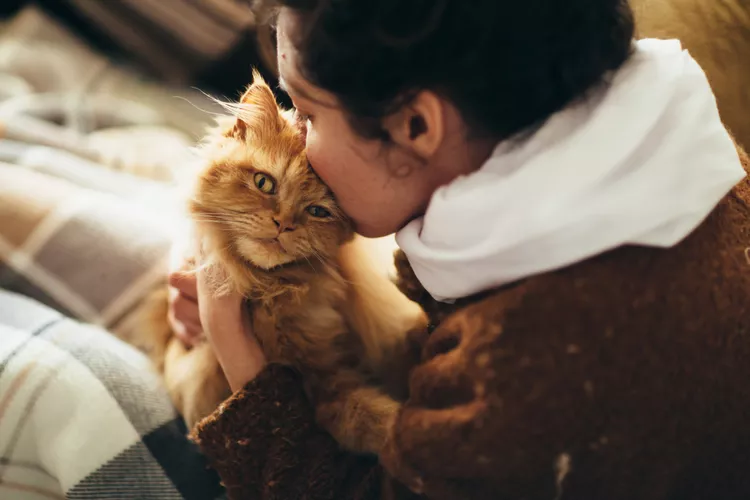
How to Prevent Cat Separation Anxiety During Vacations
Discover why cats develop litter box problems and cat behavior problems when you go on vacation and what you can do about it to help them.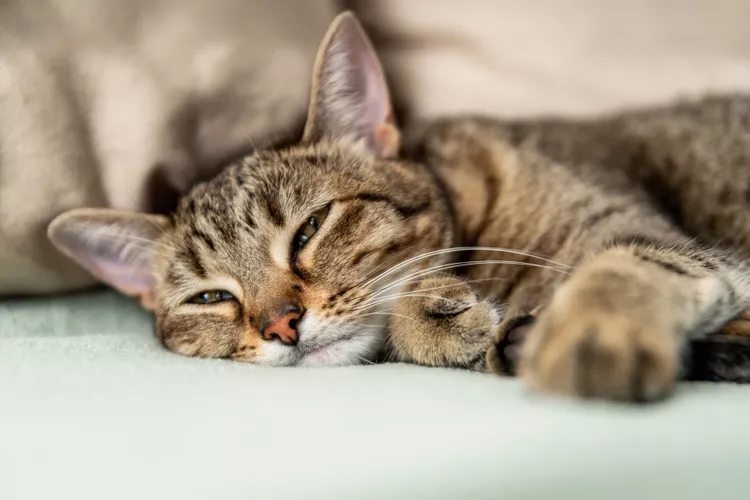
Cat Behavior Changes That Might Mean Something's Wrong
Cats' behavioral changes may indicate problems—or they may mean nothing at all. Explore causes of odd behavior and what to do about them.
Lhasa Apso: Dog Breed Characteristics & Care
The Lhasa apso is an ancient breed from Tibet that was bred to be a watchdog. Learn about its history, health, exercise needs, and more.
Reasons Why Dogs Run Away and How to Stop It
Dogs can escape, especially if they’re bored and not properly contained. Here are some techniques for stopping your dog from running away.
Can Dogs Get Depression? How to Help Your Sad Dog
Can dogs get depression? Learn about the signs of depression in dogs and find out how to help your sad dog.
How to Stop Aggression in Dogs
Dog aggression can be a serious behavior issue for pet owners. Learn how to stop aggression in dogs before someone gets hurt.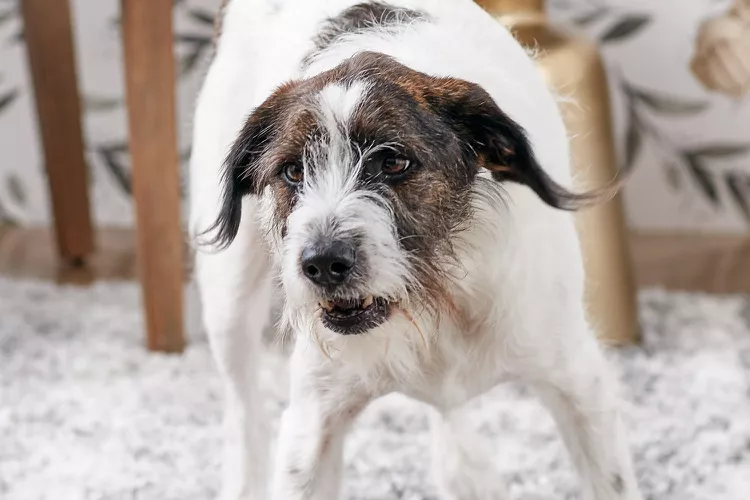
How to Stop Your Dog From Growling
A growling dog can soon become even more aggressive. Reduce the noise and potential for a dangerous situation with some of these techniques.
Why Do Dogs Dig Holes? How to Stop Your Dog from Relandscaping Your Yard
Dogs have been digging holes for centuries and for many reasons. Whether they’re bored or want to cool off in the dirt, here are the top reasons why dogs dig holes.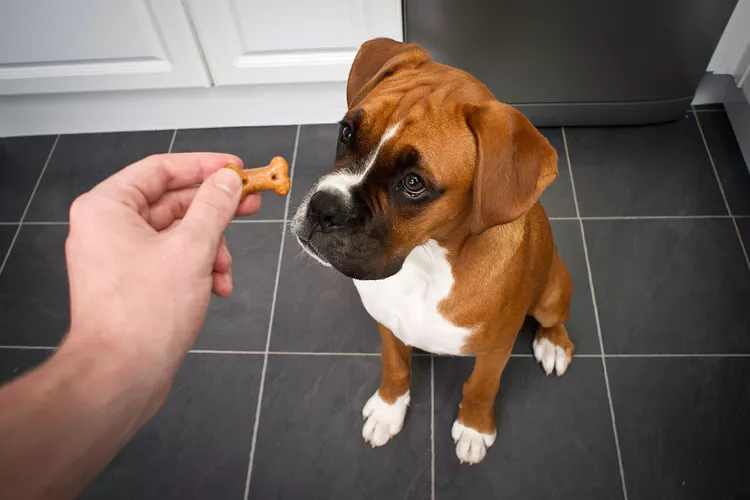
Dog Treat Varieties
Learn about the different types of dog treats on the market and decide which are best for your dog.
Can Dogs Eat Asparagus?
Dogs can eat asparagus, provided the vegetable is cooked plain and cut up for them. Seasonings, salt, and butter make it unhealthy for dogs.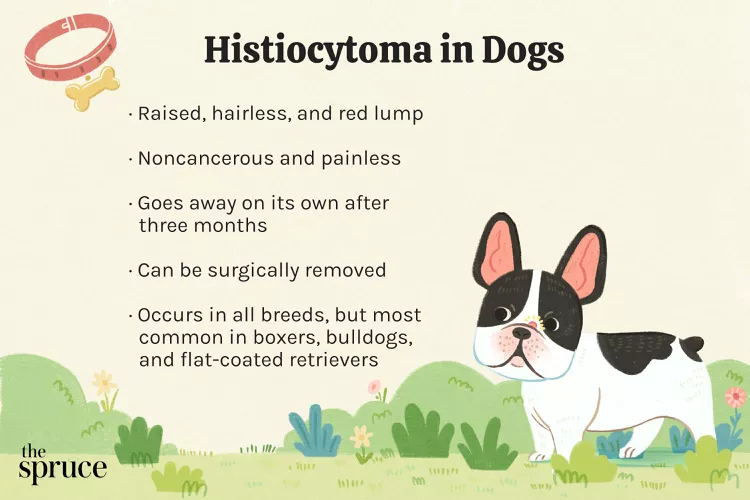
Histiocytomas in Dogs
A histiocytoma is a type of benign (non-cancerous) skin lump that usually affects young dogs. Learn the causes, treatment, and prevention.
Why Is My Dog’s Eye Swollen?
If your dog's eye is swollen, she may need veterinary attention. The inflammation could be caused by allergies, an injury, or even a tumor.
Common Bugs and Parasites Found on and Inside Dogs
Learn about common types of parasites in dogs. Find out how to treat and prevent parasites to keep your dog, your family, and yourself safe.
Exploring the Different Types of Pet-Friendly Beaches
Are you looking for pet-friendly beaches? Learn about the different types of pet-friendly beaches, their locations, and tips for visiting them with your pet.
10 Obscure, Little-known Canine Facts in Honor of National Dog Day
With National Dog Day upon us, it's time to celebrate everything about our favorite pets—even the weirder stuff. Here are 10 obscure facts about dogs you probably didn't know.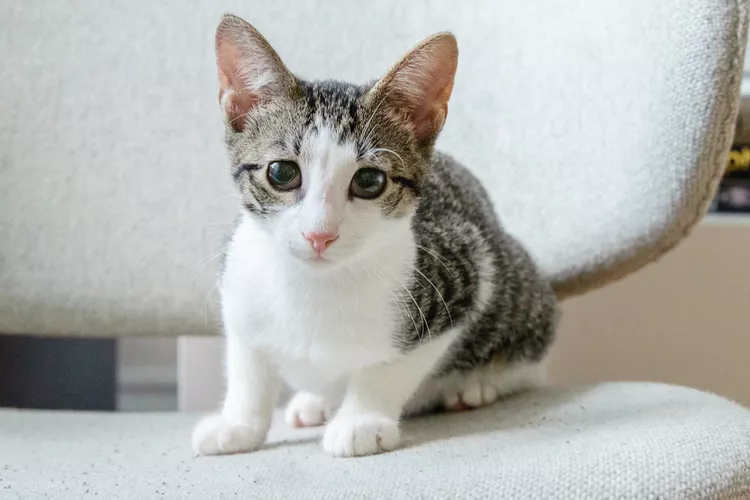
Kitten Development From 3 to 6 Months Old
Kittens grow and change a lot during their first year. Find out what happens between the ages of three months and six months old.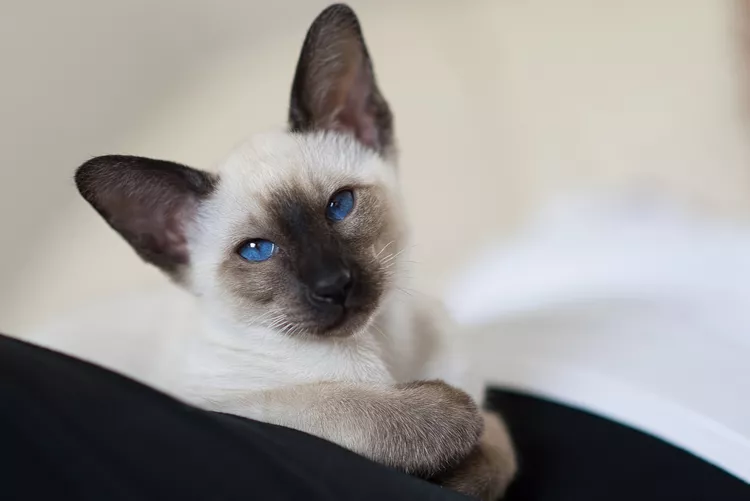
95 Siamese Cat Names
Our list of Siamese cat names has diverse and fun options to help you choose the ideal moniker for your elegant and lovable feline companion.
What to Buy for Your New Cat: A List of Essentials
Before you bring your new cat or kitten home, there are a number of things to collect or buy so your cat will feel welcomed like a family member.
The 6 Best Cat Nail Clippers of 2024 for a Safe Trim
Clipping your cat's nails can save your furniture and keep your kitty comfortable. We asked veterinarians for their cat nail clipper recommendations.